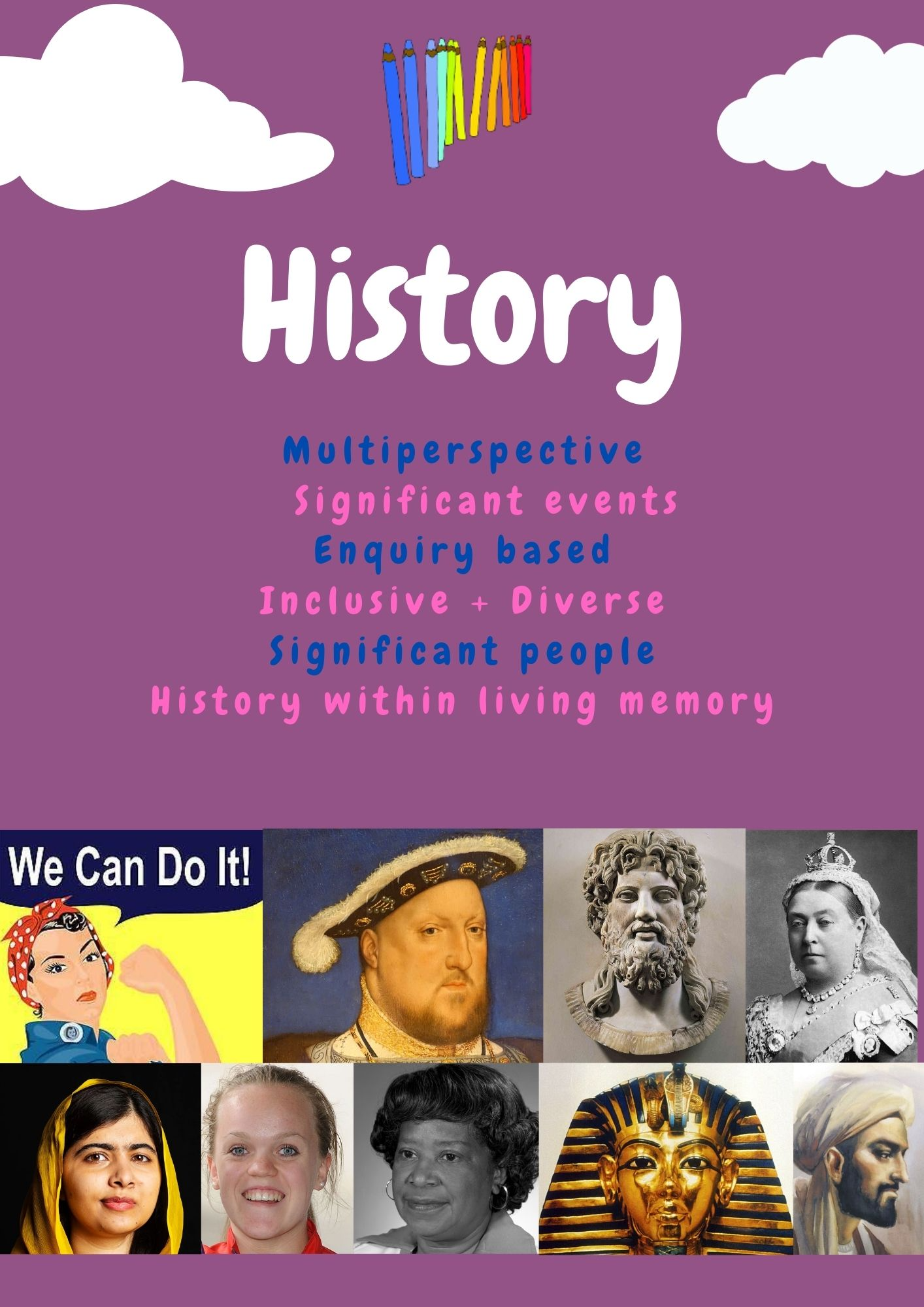History

Intent
At Barlby Primary School, we use the Kapow History scheme to inspire curiosity and critical thinking in our pupils. We aim to develop their understanding of local, national, and global history, helping them recognise key events and figures and how the past has shaped the present. Through historical enquiry, pupils will gain the skills to analyse evidence, ask questions, and form conclusions. Our curriculum encourages empathy and an appreciation for the diversity of societies and the complexity of human lives. By focusing on key concepts like power, migration, and civilisation, we ensure pupils build a secure knowledge of history, enabling them to make connections across time. The scheme aligns with the National Curriculum and supports pupils' development in both EYFS and beyond.
Implementation
At Barlby Primary School, the Kapow History scheme is implemented through a well-structured, enquiry-based approach that builds historical knowledge and skills over time. Each unit focuses on key concepts such as change, cause and consequence, and historical significance, while developing pupils’ chronological awareness. From EYFS to Key Stage 2, children explore history through a mix of adult-led and independent activities, deepening their understanding of significant events and figures. The curriculum uses a spiral model, revisiting key themes like power and migration, allowing pupils to make connections across periods. Lessons are engaging and varied, with opportunities for pupils to carry out their own historical enquiries, supported by knowledge organisers and differentiated teaching. This approach ensures that all pupils develop a secure foundation in history, preparing them for future learning.
Impact
The impact of Kapow Primary’s scheme can be constantly monitored through both formative and summative assessment opportunities. Each lesson includes guidance to support teachers in assessing pupils against the learning objectives. Furthermore, each unit has a skill catcher and knowledge assessment quiz which can be used at the end of the unit to provide a summative assessment. After the implementation of Kapow Primary History, pupils should leave school equipped with a range of skills to enable them to succeed in their secondary education. They will be enquiring learners who ask questions and can make suggestions about where to find the evidence to answer the question. They will be critical and analytical thinkers who are able to make informed and balanced judgements based on their knowledge of the past. The expected impact of following the Kapow History scheme of work is that children will:
● Know and understand the history of Britain, how people’s lives have shaped this nation and how Britain has influenced and been influenced by the wider world.
● Develop an understanding of the history of the wider world, including ancient civilisations, empires, non-European societies and the achievements of mankind.
● Develop a historically-grounded understanding of substantive concepts - power, invasion, settlement and migration, civilisation, religion, trade, achievements of mankind and society.
● Form historical arguments based on cause and effect, consequence, continuity and change, similarity and differences.
● Have an appreciation for significant individuals, inventions and events that impact our world both in history and from the present day.
● Understand how historians learn about the past and construct accounts.
● Ask historically-valid questions through an enquiry-based approach to learning to create structured accounts.
● Explain how and why interpretations of the past have been constructed using evidence. ● Make connections between historical concepts and timescales.
● Meet the relevant Early Learning Goals at the end of EYFS (Reception) and the end of key stage expectations outlined in the National curriculum for History at the end of Key stage 1 and 2.
